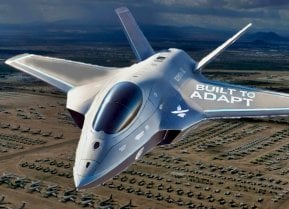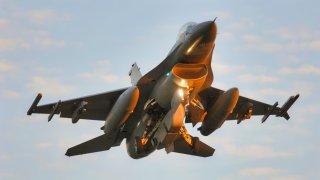In Kursk, 'Winter is Coming': Ukraine's Race Against Time
The situation in Kursk and the broader war will likely remain fluid and highly unpredictable. The Kursk offensive was a good idea today. Whether or not it remains a good idea in history is uncertain.
Throughout history, offensives are often judged not merely by their immediate outcomes, but by their strategic implications and long-term consequences. Ukraine's recent push into Kursk, while controversial, should ideally be evaluated through this lens.

To judge whether Ukraine's offensive is ultimately a good idea requires us to step back from the immediate situation and consider the broader geopolitical chessboard. Ukraine, facing an existential threat from a resurgent and aggressive Russia, finds itself in a position where inaction is essentially defeat. Ukraine must do something.
Think of how Churchill roused the United Kingdom to fight on while London was being shelled by the Axis during World War II. The offensive into Kursk is not just a military maneuver, but a statement from Ukraine to the world that the fight lives on.
Historically, nations under siege have often found that their survival hinges on their ability to seize initiative. Ukraine's leadership, clearly aware of this reality, likely sees the offensive as a necessary risk. It serves multiple strategic purposes: disrupting Russian supply lines, boosting domestic morale, and critically, demonstrating to Western allies that Ukraine remains a viable investment in the fight against Russian expansionism.
However, the wisdom of this move cannot be divorced from its execution and aftermath. The coming months will be critical in determining whether this offensive was worth it. Several factors will play pivotal roles:
Territorial Gains and Losses: While initial progress may seem limited, the true measure will be Ukraine's ability to hold and consolidate any gains made. This could be easy, but could also be brutal as sides fight for control of key points.
Russian Counter-Response: Putin's regime, already stung by previous Ukrainian successes, is likely to escalate its efforts. Both sides cannot afford to be seen as lacking initiative. As of writing, Russia has already launched a counterattack in response to the Kursk offensive, deploying five missiles and seventy-four drones across the region.
International Support: The offensive's perceived success or failure will likely influence the willingness of Western allies to continue their support.
As for Ukraine's capacity to mount an effective push against Russian invaders, this question touches on both material and intangible factors. Materially, Ukraine's military capabilities have been significantly enhanced by relatively rapid Western support. Modern weaponry, training, and intelligence have transformed the Ukrainian armed forces into a formidable fighting machine.
Yet, guns are useful only as long as they have bullets. The sustainability of this support is critical. The political will of Western nations, particularly in the face of domestic economic challenges and potential "Ukraine fatigue," may waver.
The United States, Ukraine's largest supporter by far, is gearing up for one of its most historic elections, which may or may not yield the nation's first female president. Ukraine is regrettably not America's political priority right now. Ukraine must demonstrate progress, and lots of it, to faraway senators on Capitol Hill and suits in the European Union to justify continued investment.
Ukraine should tread carefully. As some of history's greatest leaders like Napoleon learned, Russia, despite its many setbacks, is a formidable adversary with vast resources and a willingness to endure significant losses. With December just four months away, the coming Russian winter will offer a stress test like no other, testing not just military strategy, but infrastructure, supply lines, and morale for both military and civilians on both sides.
The situation in Kursk and the broader war will likely remain fluid and highly unpredictable. The Kursk offensive was a good idea today. Whether or not it remains a good idea in history is uncertain. The effectiveness of Ukraine's push against Russian invaders will depend on a complex interplay of military power, international support, and strategic acumen. While Ukraine has demonstrated remarkable capacity thus far, sustained success will require not just foreign funds, but continued innovation, resilience, and strategic patience. Should all of these cards align for Ukraine, then many more victories lay ahead.
About the Author:
Symington Smith is a trustee of the New York Military Academy and a member of the National Committee on US-China Relations.
Image Credit: Creative Commons and/or Shutterstock.


